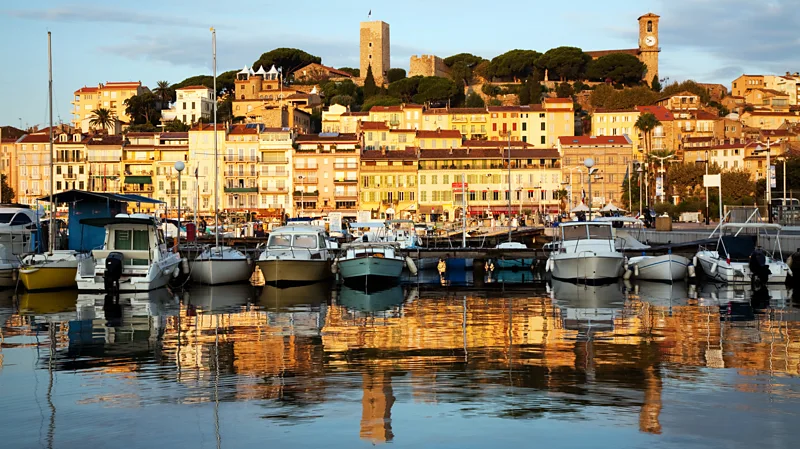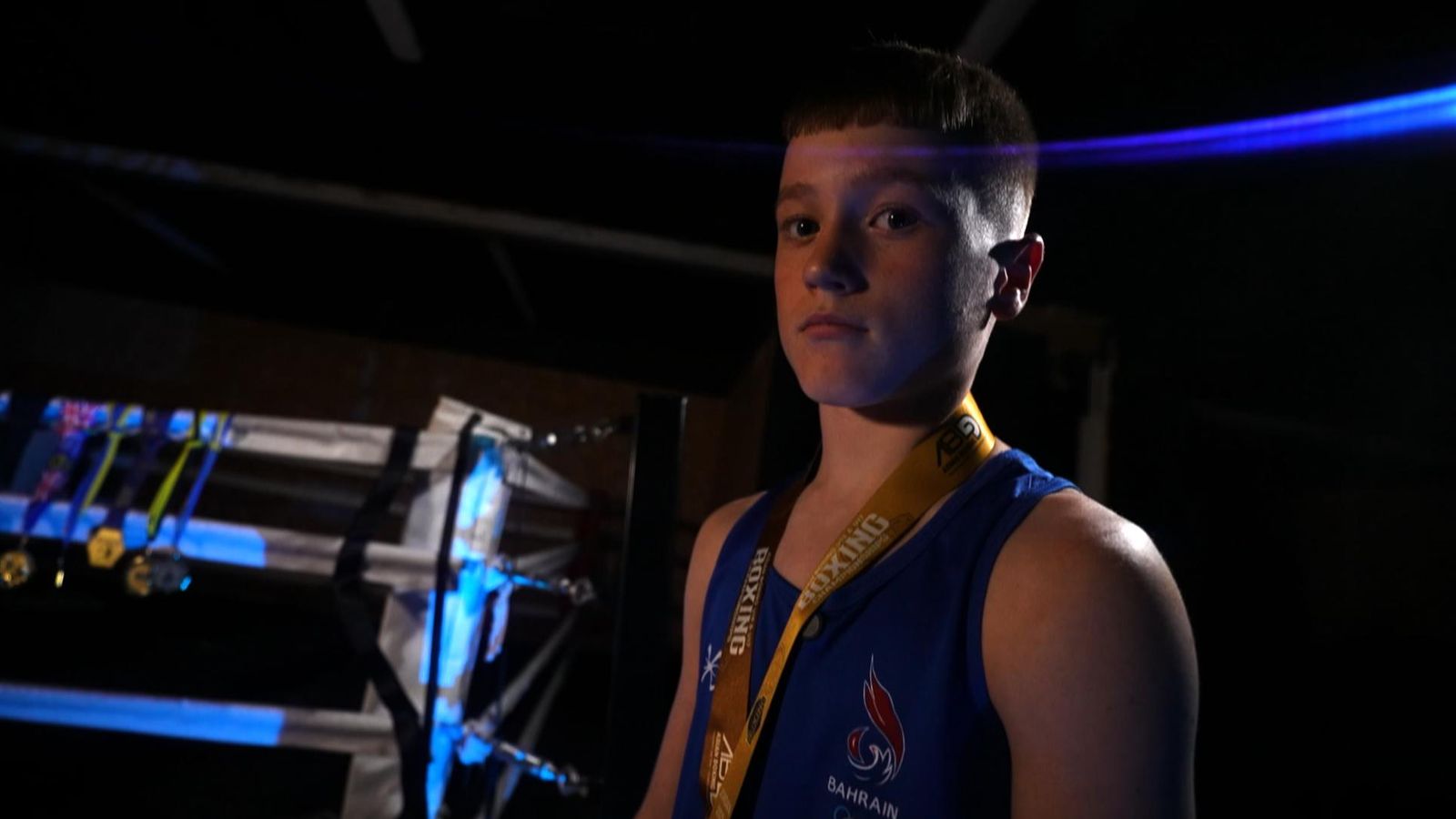A weekend in Cannes with an attaché to the stars
Gilles Bastoni is Cannes' celebrity concierge. Here is his tailor-made list for a sublime Cannes getaway – from luxurious star-studded venues to escapes at sea.

Every May since 1946, the red carpet has been rolled out onto Cannes' palm-lined boulevards for its International Film Festival, turning the French Riviera resort city into a playground for silver screen stars.
Much like the celebrities it attracts, Cannes isn't camera shy: it's a postcard-perfect town bursting with fuchsia bougainvillea and resplendent ivory-hued facades. And as its palatial grand hotels show, the town has been a magnet for the elite long before the dawn of film – prior to entertaining Hollywood royalty, it was the haunt of European nobility.
The 2024 edition of the Film Festival, taking place 14-25 May, will bring a set of well-known A-listers, from Anya-Taylor Joy to Chris Hemsworth and Kevin Costner. But you don't need to be of blue blood or billed in a Hollywood blockbuster to enjoy a VIP experience in this jewel-like Côte d'Azur holiday town.
We spoke to Gilles Bastoni, the Cannes born-and-bred head concierge of the city's iconic, five-star Hôtel Barrière Le Majestic, which is opposite the main venue of the Film Festival and hosts its main VIPs.
Known as the "concierge of the stars", Bastoni was raised on Cannes' glam. "My father was head concierge of Le Majestic," he says. "You could say I was nearly born in the hotel."
As Cannes' celebrity concierge, Bastoni knows a thing or two about demanding clients – and going the extra mile to fulfil their needs.
"As a concierge, you always have to be on top of things," he says. "You have to change things again and again, to answer all guests' requests and satisfy them. One time, one celebrity guest forgot their dress in Paris and we had to go pick it up. Another time, we had a very big celebrity who wanted to have a birthday party for their spouse on the boat, and when things didn't work, we needed to find a backup." The outcome? "They became a confidante in the end."
Here are Bastoni's A-list ways to experience Cannes in its full beauty, whether or not you have an invite to the Film Festival.
1. Best for seeing Cannes at its most iconic: La Croisette
Few places better encapsulate the cinematic grandeur of Cannes than its seafront promenade: La Croisette.
"La Croisette is incredible," Bastoni says, barely able to contain his enthusiasm. "It's 1km long, full of luxurious brands, beaches and hotels. There aren't many places in the world where you can find such a concentration of luxury."
Designed in the 19th Century by a British aristocrat, La Croisette is a masterclass of Art Nouveau architecture, with its row of grand hotels — from Bastoni's own Majestic to the JW Marriott, Carlton Cannes and Hôtel Martinez — as well as luxury boutiques, plush cafes and even shops reselling celebrity memorabilia.
The film industry's legacy is palpable here –150 stars' footprints can be found on the promenade.
"Come Film Festival, [La Croisette]'s vibe is totally different," Bastoni says. "The road is packed; you have open-air cinemas on the beach."
2. Best for a touch of Old Cannes: Le Suquet
Cannes may now be synonymous with the glitterati, but it remains a demure Provençal fishing village at its core, and nowhere is this more evident than at Le Suquet, its pocket-sized old town.
While some may be drawn to Cannes because of the magnetic power of its Film Festival, Bastoni believes the key to enjoying the town in its full glory is to appreciate its more traditional soul.
"Cannes has two sides — the low-key, discreet and quiet Cannes," Bastoni says. "And then there's the Cannes of parties and fashion and money. Having a great day, a great weekend, is to be able to experience both – to go about the islands, for instance, and then to conclude the day heading to a trendier place."
Crowning the bay, Le Suquet is a tight-knit complex of pastel-hued alleyways topped by a castle and church, both built in the 12th Century. In the harbour, small fishing boats and mansion-sized mega yachts glide side by side.
It's a welcome break from the brazen opulence of La Croisette. "Here, you see what Cannes really is," Bastoni says. "It started off as a small fishing town. Everything else was built around it. You still have fisherman in [Le Suquet's] old port."
Up the quarter's cobblestone streets, Le Suquet's Gothic monastery-château and church of Nôtre-Dame-de-l'Espérance provide a unique vantage point from which to take in Cannes' panorama.
"You can see the sea, the islands. It's a spectacular view," Bastoni says.
And for all the energy burnt trekking up to its summit, Le Suquet does not leave its visitors on an empty stomach; its Meynadier Street features delicatessens, restaurants and cafes that have belonged to local families for generations.
Bastoni's pick? "Le Maschou," he says. "It's the best restaurant for local food. It's a lowkey place [typical] of the old town."
3. Best for a local foodie experience: Marché Forville
At the foot of Le Suquet is Cannes' beating heart: the Marché Forville (Forville Market)
"You'll want to go see the old town's market," Bastoni says, to truly get the feel of the Côte d'Azur life and step into a local's shoes.
Over in Forville, a sturdy, orange-coloured edifice, the wafting scent of garlic and parsley mix with the catch of the day.
While French cuisine is typically renowned for its fussy, buttery profile, the food of the Côte d'Azur – as Bastoni notes – has a leaner, more fragrant note.
"Ours is a Mediterranean cuisine," Bastoni says. "We don't have a lot of heavy, creamy food. Our kitchen has lots of fish, olive oil, vegetables and fresh produce. It's all about freshness and aromatic herbs."
Stock up on local specialties from fougasse – the French cousin of Italy's focaccia — to socca (chickpea pancakes) and a home-made aioli garlic dip.
4. Best for outdoor experiences: Lérins Islands
Just off Cannes' Point Croisette peninsula, the Lérins Islands are impossibly idyllic, surrounded by swirling shades of turquoise sea, secluded beaches and covered in lush Mediterranean brush.
But their history, Bastoni points out, is decidedly less dreamlike.
"The first and biggest island, Île Sainte-Marguerite, used to be a prison," he says.
Indeed, the 17th-Century Fort Royal – perched on the side of Sainte-Marguerite – was contested between the Spanish and the French, and once hosted many noteworthy inmates, including Louis XIV's Man in the Iron Mask.
Things take a holier turn in the neighbouring île Saint-Honorat, where 21 monks live in a 5th-Century Cistercian Abbey.
"The monks even have their own winery," Bastoni says – one that dates back 1,000 years.
As Bastoni remarks, the islands make for the perfect out-of-town excursion providing scenic natural trails with a history lesson on the side. And while they maintain their unspoilt, rustic appearance, the islands are not immune from high-profile incursions – meaning you might spot a celebrity in the wild.
"Over at [Sainte-Marguerite]'s La Guérite restaurant, you have Elton John as a customer," Bastoni says. "He went two years in a row."
5. Best night out: Medusa
A weekend in the French Riviera would not be complete without nighttime revelry – and, with its sunset-primed views over the sweeping bay and Le Suquet, Medusa offers the perfect location for a glam night on the town.
"Medusa is a restaurant that turns into a club," Bastoni says, much like many other beachfront clubs in the town. Located on Point Croisette, Medusa attracts throngs of tourists because of its now-legendary reputation as a premier venue. But it's also renowned for its Mediterranean-Asian fusion food, made by Greek chef Yannis Kioroglou.
With an entrance fee of €55 Medusa isn't for those on a budget. And younger clientele may eschew Medusa for hip clubs like Bâoli and Bisous Bisous, which play house music.
But Medusa, for Bastoni, remains iconic, for one reason: "It's the cabaret show," he says, which starts as the restaurant metamorphoses into a club.
And it's not just any cabaret. With pyrotechnics and elaborate costumes, Medusa's shows do not skimp on high production values.
"Medusa is just a beautiful place," Bastoni says.
-bbc







